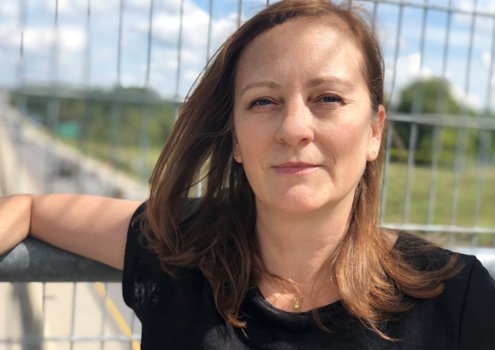Reading time: About 2 minutes
Becky Blake says that new writers are often too hard on their early drafts. They haven’t yet learned to trust the process of release and revision….
Becky Blake is a creative writing instructor at the University of Toronto’s School of Continuing Studies. Her essays and stories have appeared in publications such as Brevity, The New Quarterly, PRISM, and The Humber Literary Review. She is author of the novel Proof I Was Here and the monthly newsletter Truly Important, which explores the many benefits of writing true stories. Find her on her website or via Substack.
I was excited to talk to Becky about how she approaches writing.
Q. Roughly how much time do you spend writing every day?
I wish I could write every day! But the reality is that I also teach and work as a freelance editor and am a stepmom to two young kids. So, my writing tends to happen between teaching semesters, and when the kids are at school, or occasionally at a rare and cherished residency. On days when I am able to write, five hours seems to be my sweet spot.
Q. What’s a simple activity or habit that makes you a better writer?
Reading widely, across genres.
Q. What interferes with your writing?
Worrying about the business of writing gets in my way sometimes: thinking too soon about whether something I’m writing will be marketable.
Q. How do you persuade yourself to sit down to write on days when you really, really DON’T feel like doing it?
That doesn’t really happen for me. I write whenever I have the chance. But I’d say to others, that if you “really, really DON’T feel like doing it,” then I wouldn’t force yourself. You might benefit more that day from interacting with art or writing made by another artist.
Q. Is there a particular motto or saying that you’ve found helpful for writing?
There’s a quote I like by Jane Smiley: “All the first draft has to do is exist.”
Q. Which stage of the writing process do you enjoy the most: researching, writing or editing/rewriting and why?
I think it’s important to find joy in each of these phases. For me, research is a chance to follow my curiosity, writing a first draft is a form of catharsis, and editing is a chance to play with language and to discover the best shape for my story and characters.
Q. What’s one of the best books you’ve read (either fiction or non) in the last five years?
My favorite novel in the last three years is Tomorrow, and Tomorrow, and Tomorrow by Gabrielle Zevin. I also loved Chain-Gang All-Stars by Nana Kwame Adjei-Brenyah.
Q. What book are you reading right now?
The Last Karankawas by Kimberly Garza.
Q. What do you think is the biggest misperception that new writers have about the act of writing?
The new writers I teach are often too hard on their early drafts; they haven’t yet learned to trust the process of release and revision. I think it’s important to understand that editing is often the biggest part of the writing process, and that revision includes spending time tinkering on the page, and time away from the page so you can return to the text with fresh eyes.


